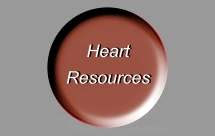
Pumpkin Seeds - Pumpkin seeds supply a lot of nutrients which include monounsaturated fats, vitamin A, B1, B2, B3, copper, magnesium, iron, zinc, manganese, and phytosterols, particularly beta-sitosterol.
.
Health Benefits of Pumkin Seeds
.
Pumkin seeds contain high levels of essential fatty acids and phytosterols particularly beta-Sitosterol, Delta5-avenasterol, and campesterol which have proved to be beneficial in treatment of prostate enlargement. The most common phytosterols are beta-sitosterol, campesterol and stigmasterol.
.
Epidemiologic and experimental studies suggest that dietary phytosterols may offer protection from the most common cancers in Western societies, such as colon, breast and prostate cancer. Although the exact mechanism of the cancer-protective action is still under investigation, it is believed that beta-sitosterol prevents the tumor cell from invading healthy cells by limiting the adhesive interaction of the tumor cell and the membrane components of healthy cells. phytosterols in general are thought to have a bright future in clinical application for treating breast and prostate cancer.
.
Coronary heart disease, one of the most common and serious forms of cardiovascular disease, causes more deaths in the U.S. than any other disease. Risk factors for CHD include high total cholesterol levels and high levels of low density lipoprotein (LDL) cholesterol. Clinical trials have shown that an intake of 2 to 3 g/day (a dose recommended by the National Cholesterol Education Program) of plant sterols and stanols -- when incorporated in margarines or spreads--significantly reduces the absorption of cholesterol by our intestine. This reduction in absorption makes the liver remove more harmful LDL cholesterol from our circulation, thereby reducing the amount of LDL in the blood. It is believed that plant sterols and stanols lower the total cholesterol level and the level of harmful low density lipoproteins (LDL), but seem to have no effect on the heart-friendly HDL cholesterol levels or triglyceride levels. Higher doses do not provide additional efficacy.
.
Studies demonstrated that stanol esters (form of stanols freely soluble in fat spreads) can reduce LDL cholesterol levels in postmenopausal women by about 13%, which makes use of stanol esters attractive as a component of nondrug therapy in these women.
.
According to FDA, foods containing at least 0.65 grams per serving of plant sterol esters, eaten twice a day with meals for a daily total intake of at least 1.3 grams, as part of a diet low in saturated fat and cholesterol, may reduce the risk of heart disease.
.
http://www.goodwithchildren.com/food/nuts/seeds-healthy-diet.aspx
Pumpkin seeds / pepitas – Eating the green, hulled, pumpkin seeds (also called pepitas) may promote prostate health, protection for men's bones, anti-inflammatory benefits for those with arthritis, and help lower cholesterol. Pumpkin seeds are a good source of the essential fatty acids, potassium, phosphorous, magnesium, manganese, zinc, iron, and copper, protein, and vitamin K.









